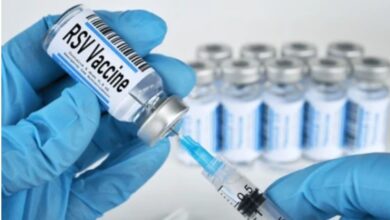LONG COVID STILL AFFECTING DOCTORS, NURSES

The serious, deadly phase of the COVID-19 pandemic has ended along with the frequency of acute cases. It’s been over for a couple of years, but millions of acute-case individuals are still troubled by lingering symptoms that have prevented them from returning to work for as long as two years. They are the unfortunate folks who have developed LONG COVID. A study from Yale found that 20 million Americans have been diagnosed with long COVID. A huge number of these patients are healthcare workers—doctors, nurses, therapists—who placed themselves at great risk by caring for the acutely ill who flooded clinics, ER’s, and hospitals. Long, tiring shifts and repeated exposure (despite wearing protective equipment) led these folks to the situation they are in today.
Several “new studies suggest that long COVID has affected healthcare workers in the US more than other Americans who have experienced, or are currently living with, long COVID.” A public health study of 1678 healthcare workers found 7.7% had long COVID. A study from Iran (of all places) found that 9.44% of 445 healthcare workers had long COVID, and in the UK, 18% of healthcare workers have long COVID.
The symptoms of long COVID are different than acute COVID. Low-grade fever, fatigue, headache, muscle aches, joint pain, shortness of breath, and the inability to return to work are seen commonly. Patients also describe “Brain fog” or cognitive issues that keep them from processing information during patient encounters. So they stay home. A January 2025 report from the U.S. Department of Health and Human Services (HHS) found “nearly 1 in 4 healthcare workers (23.5%) with long COVID reported their symptoms significantly affected their work.”
The concern among these patients is that in addition to feeling sick all the time, they never feel well enough, or energetic enough, to think about returning to work. That has to affect staffing and efficiency especially with emergency room services. Back in 2020, I wondered what would have been my response to the COVID-19 pandemic. Would I have kept my office open? I was the family physician for a lot of people so I always told myself I would get gowned, masked, and gloved up and seen patients until I became ill myself. Would I have become ill? Would I now have long COVID? I’ll never know. But I was disturbed by the fearful, self-preservationist attitude of many doctors at that time. We were trained, and took an oath, to treat patients who needed our help, regardless of risk. Many forgot that in 2020.
It is unfortunate that so many nurses, doctors, and therapists have long COVID, but in the process of developing it, it will never be known how many people’s lives they saved by being there to do their job providing care.
Reference: Brzostowicki D. Long COVID Hitting Doctors and Nurses Hard. MEDSCAPE 2025 September 3. MEDSCAPE.com




